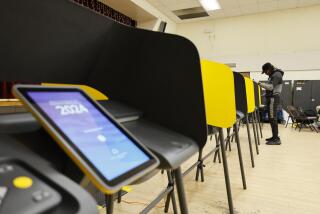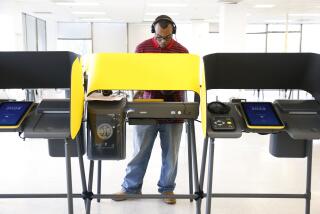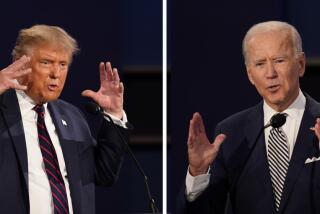In red California, election tests friendships, worsens divisions. ‘You can feel the tension’
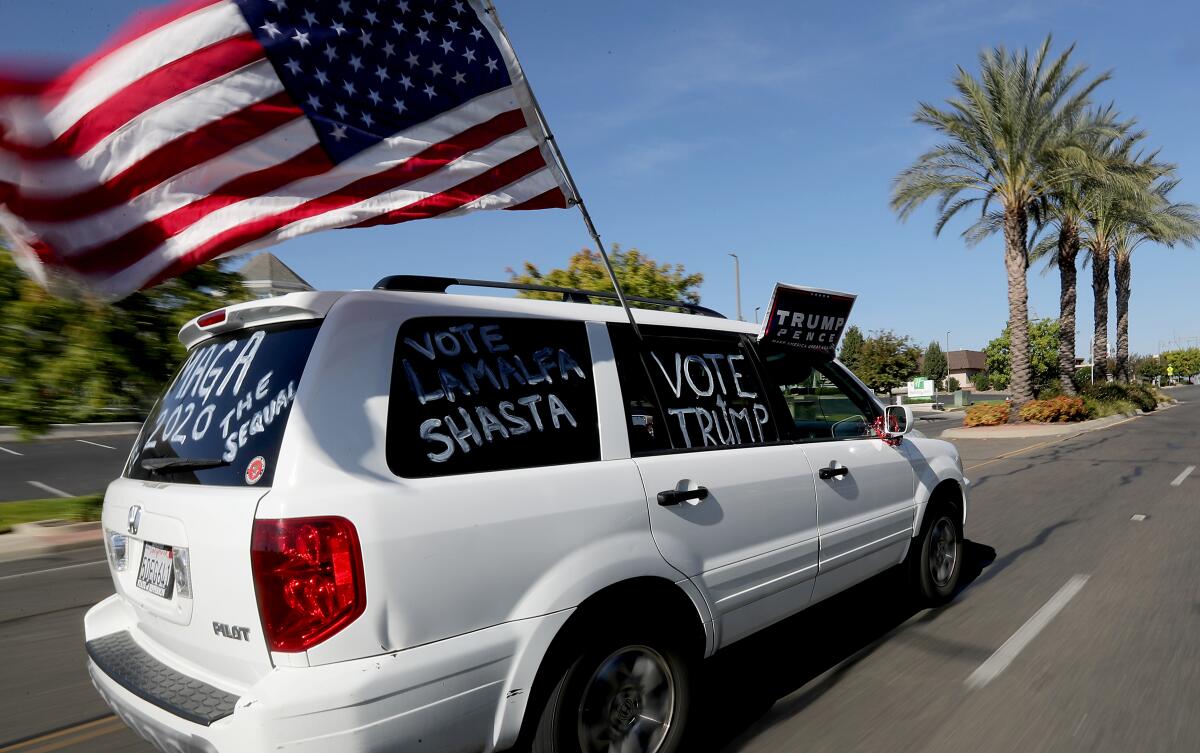
Victor Castellanos says the presidential election feels a lot like this: a choice between a raw jalapeño and a snow-cone. Two radically disparate things he’s not really in the mood for.
“I can’t wait until it’s over,” Castellanos, 58, said as he washed the windows of his Dodge Ram outside the Shingletown Store. Ultimately, he said, he held his nose and cast his mail-in ballot for Joe Biden — a man he believes is too old to be seeking the presidency — because “I’m not going to vote for that narcissistic [expletive] Trump.”
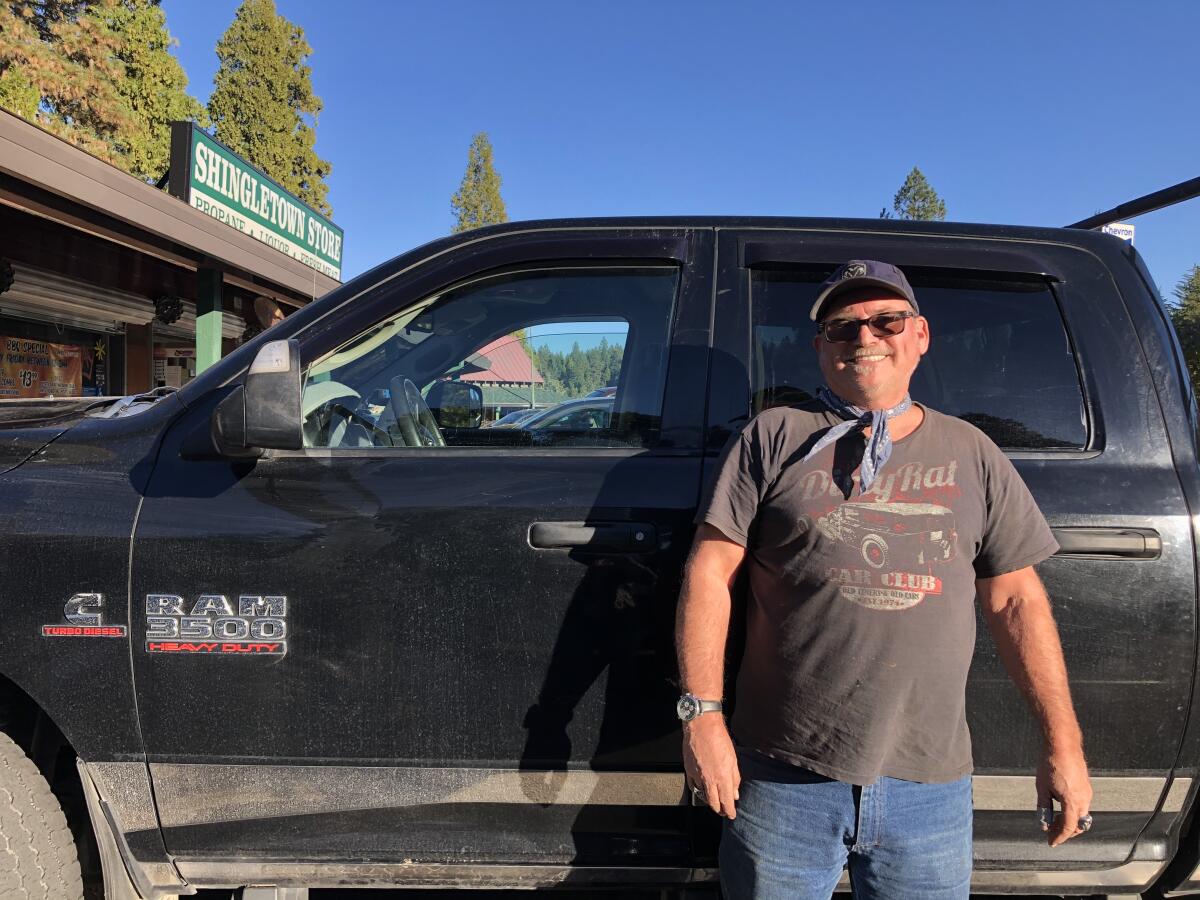
In this Shasta County hamlet of 2,200 people named for the shingle-makers who supplied Gold Rush miners, enormous flags backing President Trump flap in the autumn wind all along Highway 44.
Like vast swaths of rural California, this is Republican country. But in these final days before the election, voters on both sides of the aisle in the old logging towns of Northern California and flat farmlands of the Central Valley seem to agree: They want the campaign, and the constant partisan bickering that has infiltrated all aspects of life, to end.
“I almost wish I could be put to sleep and be woken up in February or something,” said Doni Chamberlain, an independent journalist who lives in Redding. “You can feel the tension.”
A self-described liberal, Chamberlain, 64, sees Trump gear in the local hardware store and MAGA hats all over town. When she’s out in public, she feels people staring at her for wearing a face mask amid the pandemic — an act Trump mocks even after being hospitalized with COVID-19.
Chamberlain, like many Americans in these divided times, has learned to navigate what she can and can’t talk about with conservative loved ones. She has lost friends who wrote hurtful Facebook posts calling liberals derogatory names.
“When all this shakes out after the election, it’ll be interesting to see what friends I have standing,” she said.
Barring the politically unimaginable, Biden will win California. But the president has legions of supporters in the nation’s most populous state. In 2016, Trump won 4.5 million votes in California, fewer only than Texas (where he got 4.7 million votes) and Florida (4.6 million).
Shasta County is part of a vast area north of Sacramento where people talk seriously about carving a separate State of Jefferson out of California’s rural, conservative northern counties. Stickers plastered on pickup trucks feature the Jefferson flag with its pair of X’s — called a “double cross” — that represent a sense of rural abandonment.
Many here chafe at government regulation and dislike California’s strict gun-control policies and liberal immigration laws. If Jefferson became a state — a proposition experts have said is doomed to fail — it would have about 1.7 million residents, a population larger than 13 other states. It would also be three-quarters white.
Farther south, in the increasingly Latino, agricultural Central Valley, the president has found a new voter in Kenneth Smith, a 35-year-old cook from western Fresno County who registered to vote for the first time this year just to support Trump.
On a recent afternoon, Smith stood by a maroon El Camino in his driveway in Coalinga — a small city from which California withheld COVID-19 relief funds after local officials declared all businesses to be essential in defiance of state orders.
Smith said he has to wear a mask at work but doesn’t wear one elsewhere. He thinks the president “has done an amazing job” handling the pandemic, and said Trump has fulfilled numerous biblical prophesies — pointing to the recent U.S.-brokered agreement to establish relations between Israel and the United Arab Emirates.
“As I walk as a Christian, my vote stands with Trump,” he said.
Smith said he was visiting a friend in Bakersfield earlier this year and went to a Black Lives Matter protest, where he got into an altercation with demonstrators.
“I said some things I’m pretty embarrassed of,” he said.
Although the vast majority of protests that followed the killing of George Floyd were peaceful, Smith said he worries about violence overtaking the country.
“All of this craziness is too much,” Smith said. “I don’t even want my daughter to come outside. I don’t want to take her outside of town.... I believe in another four years, Trump will have all this fixed.”
All along the dusty, hour-long drive northeast from Coalinga to Hanford, signs affixed to mesh cotton trailers read “Another Farmer for Trump” and “The only thing worse than COVID-19 would be Biden-20.”
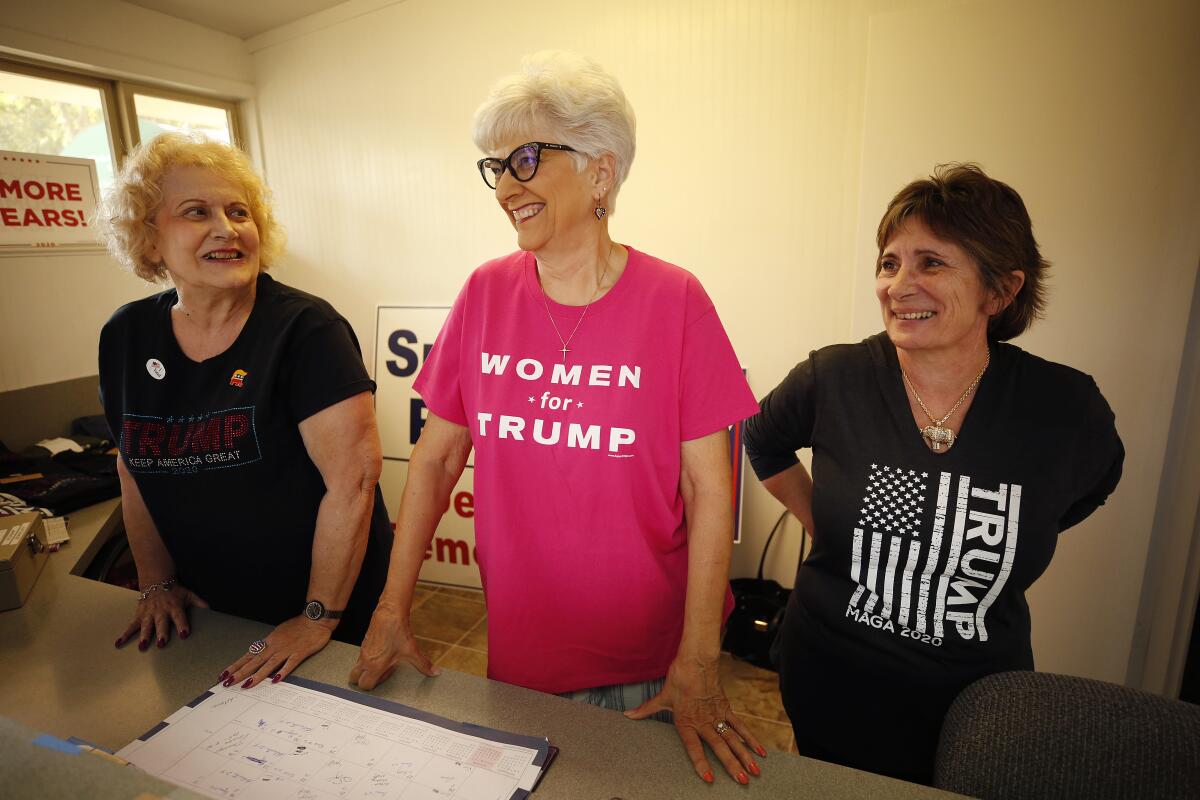
At the Kings County Republican headquarters in Hanford, volunteer Mary Jane Loya said she will vote for Trump just as she did in 2016 — and is frustrated by what she sees as an unprecedented effort by his critics to sabotage his presidency.
“It’s just so unfair — they won’t let him do his job,” the 74-year-old said.
Her late husband’s family is liberal, she said, and some have unfriended her on Facebook over politics.
“Let’s face it, he doesn’t have a filter,” Loya said of the president. “He doesn’t always say things right. But I think his heart’s in the right place.”
Back in Shasta County, a small group protesting coronavirus restrictions, mask mandates and vaccinations stood last week near Redding’s Sundial Bridge. Among them was Robert Flynn, 30, who wore a homemade, 17th century-style plague doctor mask with a bird-like beak.
“It’s more political than an actual pandemic,” he said of the coronavirus. “If it were a real pandemic, we should have been wearing, like, gas masks that go over your whole head.”
His stance on COVID-19 hasn’t always gone well.
“I lost friends for my views and my beliefs,” he said. “At first, it was hard. But then I decided, you know what, they’re not my real friends. If they’re your real friends, they stick with you. But if they’re not? Bye, Felicia.”
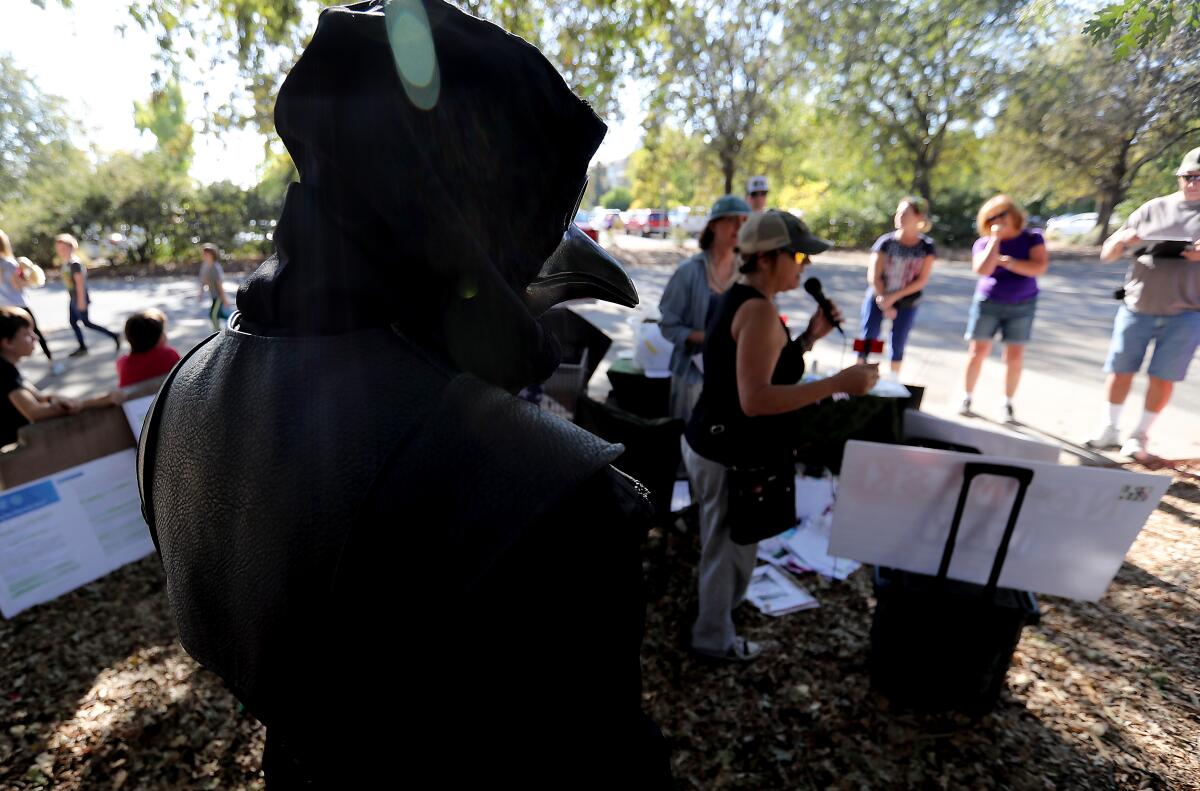
Speaking with Flynn was Lori Bridgeford, a 62-year-old healing arts therapist from Shasta Lake. She says the pandemic is an effort by the government to manipulate and control the population and to force vaccines.
“We’re a rural area. We’re not the kind of people who are doormats,” she said. “We’re not violent people but, I tell you what, we’ve got a lot of people [for whom] there’s a limit and a line in the sand. When you start violating our First Amendment, Second Amendment and all the rest — assemblies, gatherings, telling us when we can worship? No. We’re going to bark back. We might threaten to bite, but we’re going to bark and shout.”
Trump beat Hillary Clinton by 36 percentage points in 2016 in Shasta County. Castellanos, a longtime Democrat, said he is so disillusioned with both parties that he doesn’t even know what to call himself any more.
On the Facebook page for his motorcycle club, he tells people to skip the politics because he doesn’t want to see the bickering.
“I’m embarrassed to identify,” he said. “Social media has got it to where it’s not even real politics; it’s just people bashing each other.”
“This is just insane,” Castellanos said, hoping that after the election “the chaos will stop.”
Well, one can dream.
More to Read
Start your day right
Sign up for Essential California for news, features and recommendations from the L.A. Times and beyond in your inbox six days a week.
You may occasionally receive promotional content from the Los Angeles Times.
